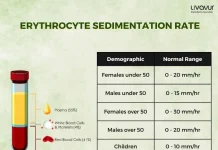This article has been reviewed by experts

Are you suffering from extreme fatigue, skin rashes, or an inflamed, sore tongue? These signs could manifest an underlying cause that requires medical attention! This may be attributed to vitamin B6 deficiency. But what exactly is vitamin B6? Vitamin B6, or pyridoxine is one of the 8 vitamins in the B complex group. It is a water-soluble nutrient present in many foods. As a coenzyme, vitamin B6 is a cofactor for several enzymatic reactions in your body. It contributes to haemoglobin formation, maintains nerve function, and boosts your immune system to fight against infections in your body [1].
Vitamin B6 being water-soluble cannot be synthesised and stored in your body, thus requires supplementation through diet. Failure to obtain sufficient vitamin B6 can lead to significant deficiency, which may have debilitating effects on your overall health and well-being [2]. This article will explore the causes, symptoms, and treatment of vitamin B6 deficiency to help you understand the condition better.
Exploring The Potential Causes of Vitamin B6
The prime cause of vitamin B6 deficiency is the insufficient intake of dietary vitamin B6 sources. Consuming less than the recommended dietary allowance per day can lead to significant vitamin B6 deficiency.
Other causes include [3]:
- Malabsorption disorders like ulcerative colitis, and Crohn’s disease
- Certain medications like anti-seizure drugs, and corticosteroids
- Chronic kidney disease
- Autoimmune disorders like Celiac disease, and rheumatoid arthritis
- Gastrointestinal disorders like inflammatory bowel disease
Risk factors that lead to vitamin B6 deficiency include [4]:
- Genetic predisposition (having a family member or relative suffer from vitamin B6 deficiency)
- Older adults
- Excessive alcohol consumption
- Obesity
- Pregnancy
- Breastfeeding
- Certain surgeries like gastric bypass
Clinical Manifestation of Vitamin B6 Deficiency [3]
You may not always exhibit signs and symptoms of vitamin B6 deficiency, since they are mostly subclinically present. However, below is the list of the warning signs to watch out for:
Skin Rashes
- You may experience a red, itchy skin rash known as seborrheic dermatitis.
- The rash can appear on your scalp, face, neck, and upper chest.
- This often occurs due to the failure of sufficient collagen production which is required for healthy skin.
Cheilosis
- This is characterised by sore, red, and swollen lips with cracked corners of your mouth.
- The cracked areas can sometimes bleed and get infected.
- Pain can impair normal speech and mastication if not treated on time.
Glossitis
- Your tongue may become red, swollen, smooth, sore, or inflamed.
- Loss of papillae is considered to be the prime reason behind the smooth and glossy tongue.
- Glossitis can cause problems like difficulty in chewing, talking, and swallowing.
Behavioural changes [5]
- Vitamin B6 deficiency can lead to insufficient production of neurotransmitters like serotonin that help control anxiety and depression.
- Behavioural changes may include mood swings, disorientation, hyper irritability, and depression.
Compromised Immune Function [6]
- Vitamin B6 deficiency may reduce the production of antibodies, and white blood cells that are needed to fight infections and strengthen your immune system.
- This may lead to increased susceptibility to infections.
Tiredness And Low Energy [7]
- Vitamin B6 deficiency can inhibit the production of haemoglobin which may lead to anaemia (microcytic)
- This can make you feel tired and lethargic.
Neurological Symptoms [8]
- These may include tingling sensation or numbness in the extremities (peripheral neuropathy), and difficulty walking.
Other symptoms
- Vitamin B6 deficiency effects may also include ataxia (impaired coordination and balance, with abnormal head movements), and hyperacusis (sound or noise insensitivity).
Effective Treatment Options For Vitamin B6 Deficiency
The treatment for vitamin B6 deficiency may depend on the severity of the condition. The treatment options include the following:
Dietary Changes [9]
a. Consuming vitamin B6 foods can help replenish adequate amounts of the nutrient to treat the deficiency.
b. Vitamin B6 sources include:
- Dairy products like milk, and cheese
- Fish
- Egg
- Chicken
- Vegetables like carrots, spinach, and potatoes
- Fruits like avocado, and banana
- Cereal
- Whole grains
Lifestyle Changes [10]
- These include limiting alcohol consumption and avoiding tobacco use, especially smoking.
- Furthermore, regular physical activity can help you maintain an ideal weight.
Treating The Underlying Cause
- It is important to identify the underlying cause and treat it, such as celiac disease, or Crohn’s disease that can improve the absorption of vitamin B6.
Medication Adjustment [3]
- Your doctor may consider adjusting the dosage of drugs that may negatively impact vitamin B6 metabolism.
- Also, alternative medication can be explored to manage the deficiency.
Intravenous Administration
- For severe vitamin B6 deficiency, your doctor may supplement the nutrient through IV infusion.
- This delivers the vitamin directly into the bloodstream, ensuring rapid absorption.
Ayurvedic Approach Towards Vitamin B6 Deficiency [11]
Ayurveda adopts a holistic approach to manage vitamin B6 deficiency through the following methods:
- Treating the underlying cause such as the digestion process (Agni)
- Panchakarma (detoxification therapy) to treat behavioural changes
- Herbs Rich In Vitamin B6
- Ashwagandha
- Turmeric
- Amalaki
- Brahmi
- Shatavari
- Triphala
- Tulsi
Conclusion
Vitamin B6 is an essential nutrient offering several health benefits. Inadequate synthesis and absorption can lead to a significant deficiency, causing a cascade of signs and symptoms. With a combination of dietary, and lifestyle changes, and vitamin supplements, vitamin B6 deficiency can be treated successfully.
FAQs
What are the functions of vitamin B6?
Vitamin B6 helps your body to:
Make antibodies
Maintain normal nerve function
Produce haemoglobin
Break down proteins
Keep blood sugar levels in the normal range
How much vitamin B6 is required daily?
The recommended daily amount of vitamin B6 is as follows:
For adults <50 years: 1.3 milligrams
For adults >50 years: 1.7 milligrams (men), and 1.5 milligrams (women)
What is the best time of day to take vitamin B6?
It is often recommended to take vitamin B6 in the morning, after a meal to maximise its absorption in the body. Taking vitamin B6 at night can interfere with your sleep and cause vivid dreams.
Are there any side effects of vitamin B6?
Taking too much vitamin B6 (more than 200 mg per day) can lead to the following side effects:
Nausea and heartburn
Stomach pain
Loss of appetite
Headache
Loss of muscle balance and coordination
Numbness
Photosensitivity
Reduces the ability to sense pain or extreme temperatures
Painful lesions
References
- Vitamin B6 (Pyridoxine)
- Vitamin B6 In Health And Disease
- Vitamin B6 Deficiency
- Vitamin B6 deficiency and diseases in elderly people- a study on nursing homes
- The vitamin B6 level is associated with symptoms of depression
- Effects of Vitamin B6 deficiency on the Composition and functional potential of the T cell Population
- Vitamins and minerals for energy, fatigue, and cognition: A narrative review of the biochemical and clinical evidence
- The role of vitamin B6 in peripheral neuropathy: A systemic review
- Dietary intake of vitamin B6 and concentration of vitamin B6 in blood samples of German Vegans
- Vitamin B6
- Ayurveda and panchakarma: Measuring the effects of a holistic health intervention
















